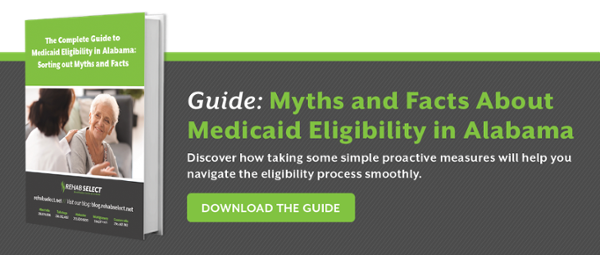 Medicare is a federal government administered "social insurance" program that's been in existence since 1966. If you are 65 years of age or older, and you've worked and paid into the system, you are eligible for Medicare.
Medicare is a federal government administered "social insurance" program that's been in existence since 1966. If you are 65 years of age or older, and you've worked and paid into the system, you are eligible for Medicare.
Enrolling in Medicare for the first time
When you enroll in Medicare for the first time, you are automatically enrolled in traditional Medicare, the original program first established in 1966. However, this isn't the best fit for everyone; understanding health benefits of specific plans will help you choose the right one based upon your particular needs.
Why do you need to choose a particular Medicare plan?
Medicare isn't one-size-fits-all, and understanding health benefits of particular plans will help you choose the right plan based on your current health status and budget. Revisit your Medicare plan at least once a year and change it during open enrollment if you need to.
Traditional Medicare versus Medicare Advantage
The two basic types of Medicare plans that are available are traditional Medicare, and Medicare Advantage, first introduced in 1997.
Medicare has four parts:
A. Hospital insurance
B. Outpatient and physician coverage
C. Medicare Advantage plans
D. Prescription drug coverage
Traditional Medicare
Traditional Medicare includes Part A, hospital insurance, and Part B, medical insurance. Traditional Medicare does NOT include part D, prescription drug coverage, but you can buy it separately. You can also buy Medigap insurance, which will cover expenses such as co-payments and deductibles, provided you incur those expenses from doctors who take Medicare.
Advantages of traditional Medicare
- You will pay standard rates for services everywhere.
- You can go to any US-based provider, doctor or hospital that accepts Medicare.
- Hospital, skilled nursing facility, hospice, and home health care as covered by Part A is already automatically covered once you are enrolled in Medicare.
Other things to know about traditional Medicare
Patient and physician coverage, including:
- Physician services
- Outpatient hospital services
- Ambulance
- Rehabilitation therapy services
require a separate premium. Alternatively, you can buy supplemental insurance to cover these costs.
If you need to, you can add prescription drug coverage, Part D, for an additional fee.
You can also buy separate insurance to cover some or most of the out-of-pocket costs you will incur with traditional Medicare.
Medicare Advantage
Medicare Advantage (MA) allows you to receive benefits regionally or locally through health maintenance organizations (HMOs) or preferred provider organizations (PPOs). This is part C of Medicare as described above.
It includes parts A and B as is true of traditional Medicare, and also generally covers prescription drug coverage (Part D).
Advantages of Medicare Advantage
- You may be covered for things traditional Medicare doesn't, including prescription drugs, preventive care, hearing aids, dental care, or eyeglasses.
- You don't need to pay co-payments and deductibles, and should not need Medigap or another supplemental insurance.
- Co-payment amounts are generally lower than with traditional Medicare, since HMOs generally don't ask for deductibles.
- You can generally stay in the hospital as long as you need to without worry.
- You shouldn't need separate prescription drug coverage.
Limitations of Medicare Advantage
- You must live in the service area of your particular plan
If you live in more than one state during the year, you will need to make sure your plan covers you everywhere, an important consideration in understanding health benefits.
- You cannot have end-stage renal disease in most cases.
If you do, you must generally sign up for traditional Medicare.
Understanding health benefits of the different Medicare plans will help you choose the right one each year as your health needs and life circumstances change. Staying on top of them will ensure that you're not caught without coverage when you need it.





